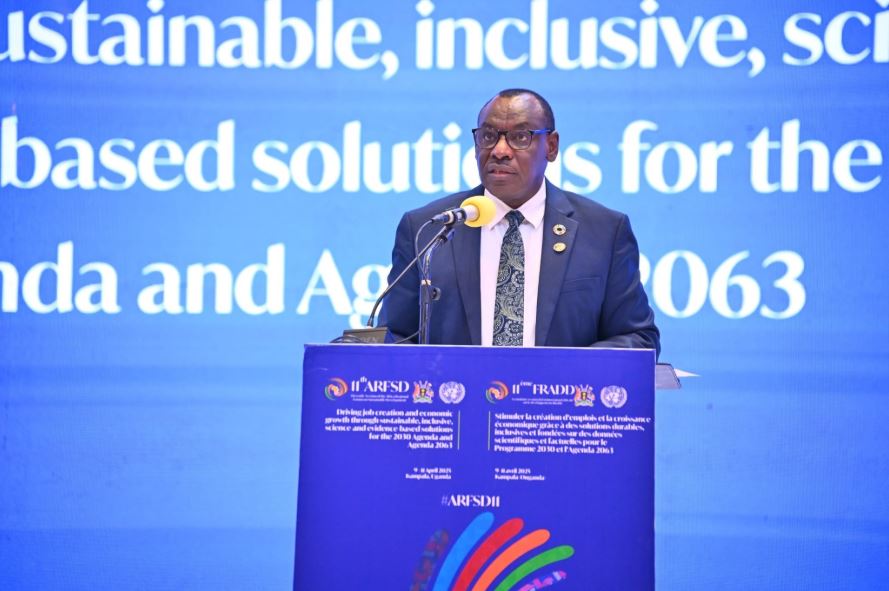
The United Nations Economic Commission for Africa (ECA) Executive Secretary, Mr. Claver Gatete, has emphasized that aid is no longer a viable solution for Africa’s development.
Instead, he says the continent needs to adopt bold, transformative actions to drive growth and progress.
Speaking at the 11th Session of the Africa Regional Forum on Sustainable Development (ARFSD-11), Gatete highlighted the need for sustainable, inclusive, and evidence-based solutions to achieve the 2030 Agenda and Africa’s Agenda 2063.
Africa’s Development Challenges
Gatete noted that Africa faces significant development challenges, including:
Substantial Debt Burden
The continent’s debt burden stands at 64.3% of GDP, limiting fiscal space for critical investments.
Slow GDP Growth
Average Growth Domestic Product (GDP) growth has hovered around 3% since 2019, far below the 7% needed to achieve SDG 8 on work and economic growth.
Limited Progress on SDGs
Gatete expressed concern that out of 144 measurable Sustainable Development Goals (SDG) targets, only 10 are on track, while 106 are progressing too slowly, with 28 regressing.
Key Areas for Development
To address these challenges, Gatete emphasized the need to focus on five critical SDGs:
SDG 3: Good Health and Well-being:
He called upon African Heads of State to boost domestic financing, strengthen health systems, and leverage digital health solutions to improve access to quality healthcare.
SDG 5: Gender Equality
To achieve this, Gatete emphasized that there is a need to promote economic empowerment, digital inclusion, and leadership opportunities for women to dismantle systemic inequalities.
SDG 8: Decent Work and Economic Growth
He explained that this can be done through scaling up vocational training, promoting entrepreneurship, formalizing jobs, and investing in social protections to harness Africa’s working-age population.
SDG 14: Life Below Water
Gatete urged African leaders to invest in sustainable aquaculture, coastal tourism, and blue carbon projects to unlock Africa’s blue economy potential.
SDG 17: Partnerships for the Goals
He also called upon the continent’s leaders to foster stronger trade partnerships and cooperation at national, regional, and global levels to achieve the SDGs.
Mobilizing Resources
Gatete proposed four strategic pillars of action to mobilize resources for development, which include:
Scaling Up Domestic Resource Mobilization
He urged leaders across the continent to expand tax bases, utilize pension funds and sovereign wealth funds, and digitize the economies of their countries to curb illicit financial flows.
De-risking Economies and Elevating Capital Market Development
Gatete pointed out that there’s a need to attract private sector investment through blended finance, credit guarantees, and flourishing markets.
Expanding Access to Affordable Finance
He called upon African governments to scale microfinance, digital finance, and impact investing to empower women-led small enterprises and youth entrepreneurs.
Leveraging the African Continental Free Trade Area (AfCFTA)
This move, he said, can accelerate regional value chains in green industries, agriculture, manufacturing, and services to drive Africa’s industrialization and sustainable growth agenda.
Gatete concluded by stressing that through focusing on these areas and adopting bold, transformative actions, Africa can drive sustainable prosperity and achieve its development aspirations.
